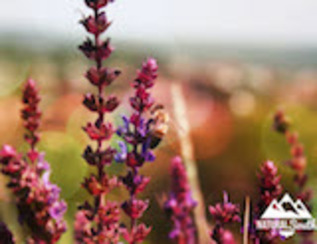Find recommended New Zealand product from a trusted local brand.
It’s the organic circle of life.
New Zealand’s organic journey has been a bit of a round-about one. When the land of the long white cloud was being settled, organic food was everywhere. Early Kiwis lived off the farm; they sourced the majority of their food from natural sources; and with the exception of the basics like flour and rice, they rarely relied on packaged products. Then the Industrial Revolution arrived to New Zealand, and with it more efficient means of producing and supplying food to the masses. Supermarkets opened and their long aisles of packaging made it increasingly difficult to distinguish real food from the fake stuff.
Fast-forward to 2014, and your great-great-great-grandmother would have trouble identifying what was actually for sale in your local supermarket. But, despite the abundance of manufactured fast food and packaging, a preference for organic living is undergoing something of a revival all over New Zealand. Everywhere you look there are new farmer’s markets and organic stores opening, stocked with locally-grown and -sourced produce straight from New Zealand farms. While supermarkets are jam-packed with boxes and labels, there’s also a section devoted to organic and natural produce. In this section, you’ll spy one of New Zealand’s most famous exports: organic Manuka honey, or raw honey.

J.Friend and Co
New Zealand is one of the world’s biggest producers of organic and raw honey brands, including the J.Friend and Co, Claridges and TranzAlpineHoney brands. Priding themselves on producing exceptionally high-quality honey without ever compromising on taste, J.Friend and Co works with beekeepers all over New Zealand to create 100% certified organic honey with unique flavours, every time. While Manuka honey is their most popular varietal, J.Friend and Co also produces flavours like clover, lavender, beechwood honeydew and Christmas pohutukawa.
Claridges
Based in Christchurch, Claridges has been in the organic food processing industry for more than 30 years and is one of New Zealand’s original organic export companies. Claridges produces both New Zealand organic and conventional Manuka honey, plus other natural floral honeys including clover, rainforest, rata and raw honey.
TranzAlpineHoney
With more than 100 years of beekeeping experience, TranzAlpineHoney exports 100% natural certified organic honey all over the world. Their product range includes organic Manuka, white clover, rata and kamahi varietals, plus Manuka honey lozenges, honey fudge and organic honeycomb.
What’s so great about Manuka honey anyway?
Aside from tasting good, Manuka honey in its purest form has also long been recognised as somewhat of a natural healer. An antibacterial compound called methylglyoxal (MG) is found in most types of honey, but in Manuka honey it’s produced after being converted from another compound called dihydroxyacetone, which is found in high concentration in the nectar of Manuka flowers. The combination of these two elements creates a potent antibacterial superfood, and the more MG that’s present in Manuka honey, the stronger the antibacterial effect.
Aside from spreading it on your morning toast, Manuka honey is great for beating the common cold. Just dissolve a spoonful of the liquid gold in hot water, along with natural ginger, and you’ve got yourself a powerful home remedy. Manuka honey’s antibacterial properties can also be used for treating minor wounds and burns. Just spread a thin layer of Manuka honey on the open wound and cover. It’s important to note, though, that everyday Manuka honey found in your pantry is not suitable for spreading on open wounds. If you want to try a natural from of treating wounds and burns, always make sure you choose a medically-proven tub from a chemist, not a supermarket.
How to tell the difference between real Manuka honey and the imitation stuff
Put simply, regular honey has had many naturally-occurring elements like bee pollen and powerful antioxidants removed through the manufacturing process. The resulting product is sometimes difficult to tell if it’s really honey at all, because the natural ingredients, many of them with proven medicinal qualities, have been replaced by synthetic or sugar-based ingredients. The only upside to this process is that the honey becomes very cheap for the consumer, however this cheap sugar-laden imitation that has very little nutritional value is nothing compared to the real deal.
On the other hand, organic honey (also known as raw honey) is taken directly from the beehive before being bottled and distributed. Because minimal manufacturing is required during production, organic honey maintains all the goodness of bee pollen and other natural ingredients. Each tub also features the distinct flavour of the flowers the bees frequent and pollinate, and as a result it’s possible to create pure varietals of organic honey like clover, lavender, pohutukawa and of course Manuka.
How to make an informed decision
On the front of any given organic Manuka honey tub you’ll notice a UMF (or Unique Manuka Factor) rating which is used to determine its level of purity and natural antibacterial properties. The higher the UMF rating, the more natural – and better for you – the honey is. If you’re after Manuka honey to spread on your toast, opt for a lower UMF rating. If you want to use Manuka honey for medicinal purposes like treating open wounds, reach out for a tub that has a UMF rating of at least 18.
An AzureQuality rating is also a good way to determine the quality of your Manuka honey.
100% owned by the New Zealand government, AsureQuality provides food safety and biosecurity services to the food and primary production sectors, including organic certification. Manuka honey is independently audited and tested until they’re proven and certified as 100% natural and organic. Watch out for the AzureQuality stamp on the side of your next Manuka honey purchase.









Join the Discussion
Type out your comment here:
You must be logged in to post a comment.